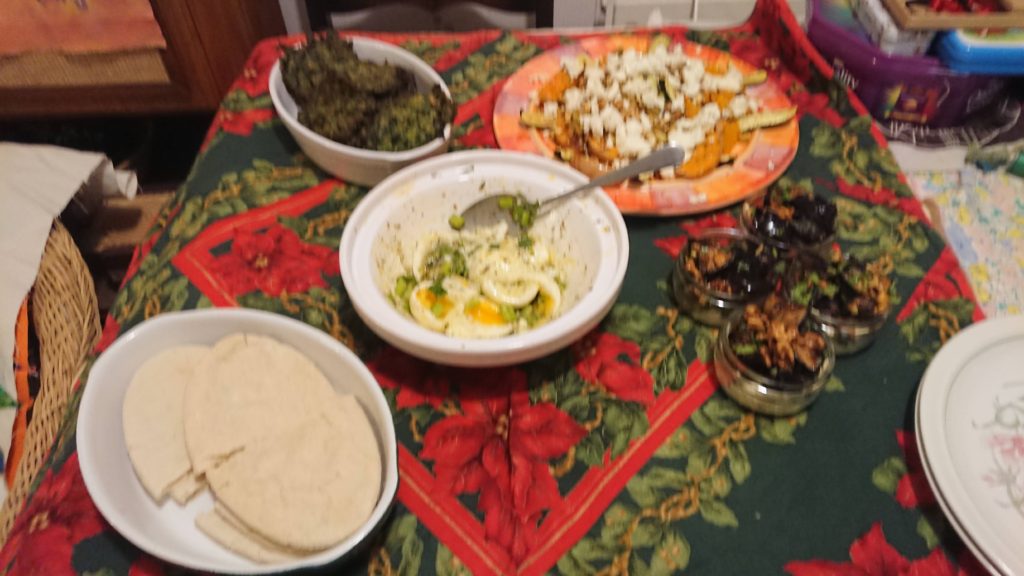Dear Benedict
In setting down a time to eat you were concerned that people ate enough and in company and that the time together was also an important part of communal life (chapter 41). The community was governed by the natural order of day and night and being in the northern hemisphere, the way it changed during the year, so you made allowances for this. Furthermore, people worked in daylight so food needed to be available to fuel that work. It all makes good sense.
In our day time is a different thing. It rushes past or drags us down. We may have company or we may not. We may have work, too much too little or none. Thinking about a chapter like this, there are so many ways in which it addresses our lives. A rhythm to daily/yearly life is important. A good one can keep us healthy and in communion with each other.
Lockdown is not like that so it’s not surprising if some folks want to bend the regulations or use their own judgement. A TV interview with a person from China about Lockdown recently revealed the view that ‘We are used to doing what we are told, you are not’. It’s certainly food for thought.
I have found different patterns developing in Lockdown even in our small community of two.
There’s a time to walk and a time to be still, a time to work and a time to rest, a time to eat and a time to prepare for eating, a time to think and a time to pray, a time to sleep and a time to wake up. There’s a time for everything in Lockdown.
From time to time, there’s also a time to worry. This doesn’t seem to have a schedule but arrives out of nowhere almost and sows its own chaos. It may change the times we had set up for something else. It can scramble up our thinking, doing and being. Having a timetable can help with getting back on track. Each thing has it’s time and place, each activity makes a space for us to enjoy that one thing.
The local shopkeeper told me that when he first got a shop it played havoc with his eating times: he’d eat all sorts of stuff any time. I took it to indicate that the new shop was a stressful experience. I remember my great uncles, who ran the fish shop when I was a child, had strict times for eating, each one coming up for his meal at the specified time, to keep a sensible rhythm, to keep healthy habits.
The communal habit of eating in local lunch clubs is something I know some older people have missed. The rhythm of the day and time and the company was helpful and nourishing as much as the food. It’s a part of old normal that we need to rethink for new normal.
Where possible, it’s sensible to have a time to eat. If we can’t do that or it seems to elude us sometimes, we need to think why that might be and see about getting back on track if we can. We need to help each other to stay healthy clearly announcing when it’s time to eat or offering opportunities for shared eating times where possible.

From the remembered bible: There’s a time for everything under heaven.
Help me to stay healthy.
From a Friend of Scholastica and a Member of the Lay Community of St Benedict.
